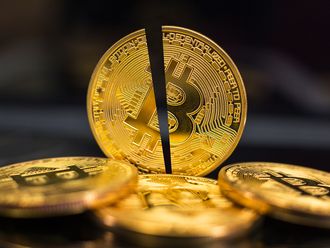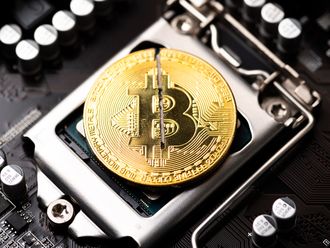Seoul: Bitcoin slumped as South Korea’s justice ministry reiterated a proposed ban on cryptocurrency venues, fuelling concern that a government crackdown will erode one of the world’s biggest sources of demand for digital currencies.
The ministry is preparing a bill that would outlaw cryptocurrency trading via exchanges, Justice Minister Park Sang-ki told reporters today. Korea’s government disclosed a similar proposal on December 28, though at the time it also included other options such as allowing trading to continue under tighter regulation.
It’s unclear whether the justice ministry’s proposal will be approved by parliament. The plan has spurred a backlash on social media, while a petition opposing the measure on the Korean president’s website has attracted more than 54,000 names. The justice minister’s comments don’t represent an official government plan, Korea’s YTN cable TV reported, citing an unidentified official from the president’s office.
Bitcoin dropped as much as 12 per cent to $12,801 (Dh46,977), before paring losses to about 6 per cent, according to data compiled by Bloomberg. Ripple fell 14 per cent and ethereum slumped 4 per cent.
Governments around the world are increasing scrutiny of cryptocurrencies as surging prices attract everyone from individual investors to Wall Street banks. Korea has emerged as something of a ground zero for the speculative frenzy, with the nation’s prime minister warning recently that the boom might corrupt the nation’s youth. The government said in December that it would be conducting on-site investigations of the nation’s cryptocurrency exchanges.
“For the last few months the Korean government has been making it very clear they want to bring this speculative activity under control,” said Thomas Glucksmann, Hong Kong-based head of APAC business development with cryptocurrency exchange Gatecoin Ltd. “This isn’t really too much of a surprise.”
Police investigation
One of Korea’s biggest digital currency venues, Bithumb, said on Thursday that it met briefly with tax officials this week. The exchange disputed a Reuters report that its offices had been raided by tax and police agents. When contacted by Bloomberg, Korea’s tax authority said it doesn’t comment on investigations due to privacy laws.
Coinone, another exchange mentioned in the Reuters report, didn’t reply to requests for comment. An unidentified spokesman told the Financial Times: “They asked for some data such as cryptocurrency trading volume, our exchange’s sales and whether we are paying corporate tax well.”
Police have been investigating Coinone’s margin-trading service since last year, according to an official who asked not to be named citing policy. He added that no other large exchanges are under police investigation.
Even if Korean lawmakers push forward with an exchange ban, local investors are likely to keep investing in cryptocurrencies through over-the-counter platforms and overseas venues, said Mike Kayamori, head of Tokyo-based exchange Quoine, which counts Koreans among its customers.
“There are always underground exchanges and OTC,” he said. “They’ll probably convert their money into bitcoin there, and then start trading offshore.”












